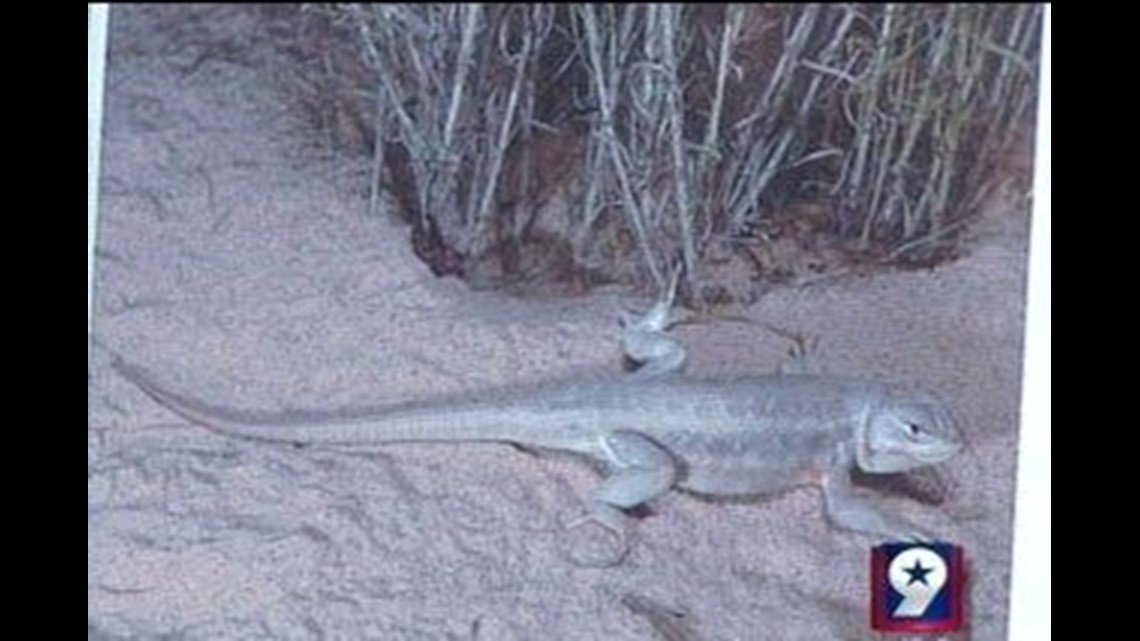

NewsWest 9
PERMIAN BASIN - Some little guys could be causing some big headaches for West Texas counties like Andrews, Ward and Crane.
The dune sagebrush lizards are in the U.S. Fish and Wildlife Service's sights as the next candidate on the endangered species list.
"Due to population, it has declined and there are threats from activities including oil and gas and then habitat loss and fragmentation," Lesli Gray, with U.S. Fish and Wildlife Service Public Affairs, said.
These little critters can mostly be found in the Shinnery Oak Dunes, which span across New Mexico and West Texas.
If the lizards become endangered, any threats to their habitat could be on the chopping block, like oil and gas production.
But a lot of the dunes are privately owned, which could mean trouble for the owners.
But state officials say it won't be nearly that extreme, they'll work with the owners individually and only if their land is posing a threat to the lizards.
"If any of those landowners have activity that would result in a potential tank of the lizard then we would work with them on having a conservation plan," Gray said.
But some local oil consultants say conserving these habitats could come at the cost of jobs.
Especially with the ground, the lizards reportedly live on oil hot spots, where double the oil can be drilled.
"We're going to cut out some wells that would be drilled," oil and gas consultant, Morris Burns, said. "We're going to reduce the number of wells drilled in this formation. This is gonna cut out jobs."
This kind of conservation also has some concerned for the rights of the landowner vs. the preservation of the habitats.
"It's gonna hurt the landowner too because he can't go in and clear brush," Burns said. "They can't go in and clear mesquite because they might disturb some of these little lizards, a two-and-a-half-inch-long lizard. They need to go point out how much damage this is going to do to their income."
There are two sides to every issue and more information is coming.
The first public comment period ended on Monday, but U.S. Fish and Wildlife Service officials told NewsWest 9, another period will be started in the next few weeks.
There will also be public hearings held in New Mexico and West Texas.
The dates and locations will be announced through the Federal Registry.

